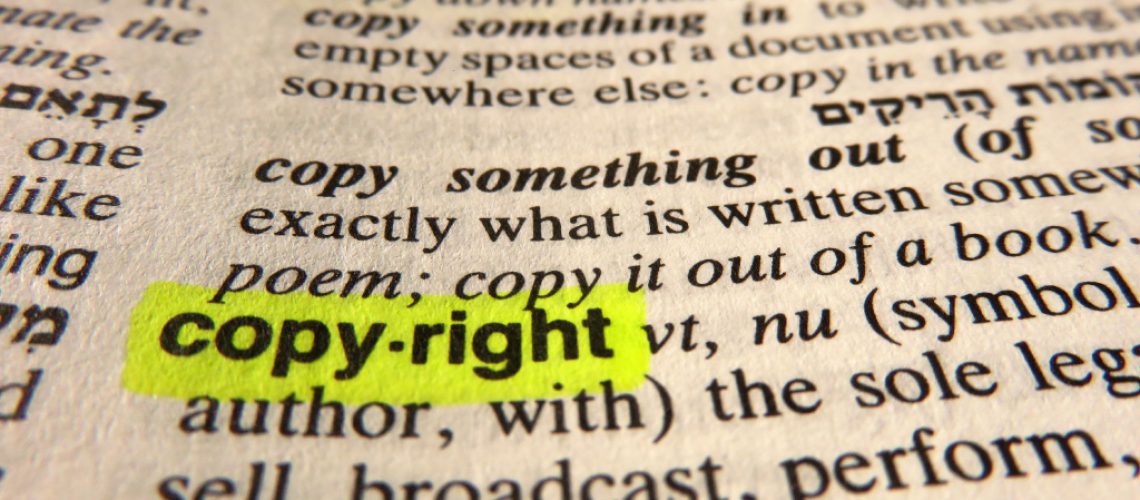What is copyright?
It is incredibly important that we consider any copyright issues when using computers - people who create content invest time and energy in their work, so it is only fair and reasonable that they have this work acknowledged and are able to earn a living from it if they want. It should also be remembered that Copyright protection applies automatically to original works - owners don't have to register their work, put a copyright notice on it or do anything for their work to be protected.
Click on the links below for some useful information on what copyright actually is:
What is copyright web site.
Rules of copyright website.
Copyright guidelines enable us to access and share published material in a fair and acceptable way. In many ways computers have made it easier for content to be shared, downloaded - so we need to make sure we are not breaching any copyright laws when we do this. For example, you may find a picture from an artist's webpage which you like and decide to use on your Facebook profile - you may think this is harmless but you have in fact used the picture without permission, you have violated copyright law. Not only is this illegal, it is unethical, as you are benefiting from something you did not pay for. It also breaches the terms and conditions of most social networking sites.
Computer users do need to be aware of copyright issues at all times, but it doesn't have to be hard. In many cases all you need to do is acknowledge the source of the content you have used. And remember, there are plenty of copyright free images available to use freely, you can even search for images which are free to share and use - just use the advanced image search option on Google and search by usage rights, or use the copyright license filter built into the Bing image search.
Try it
Click on following link which will take you to the Bing Images site:
Bing search - Images
Type "cat" in the search box and then click on the search button. Click on the License drop-down menu then select "public domain"
The resultant images are free to use. This is because the term "public domain" refers to material where the copyright owner has waived their exclusive rights, or the copyright has expired. For an explanation on the different types of licenses click on the following link:
Filter images by license type.
Copyright and Plagiarism
Copyright and plagiarism are interrelated concepts. Organisations and individuals that do not obtain permission for using someone else's work are infringing copyright. Plagiarism is when a person uses the ideas or words without acknowledging the source. When doing research and creating your own work it can be very tempting to copy and paste something that expresses exactly what you want to say, sometimes so close in fact that even if you summarized it in your own words you can't think of any other way to say it. However, if you do not reference the original author or creator then you are at risk of violating copyright laws. Take a look at the Lynda.com presentation below for more information on plagiarism and copyright.
So you do need to be careful when submitting work, in today's computer age it is very easy for institutions to check for originality. For example "Turnitin" is a feature included in Moodle and anything you submit to the Moodle Site will be automatically run through it.
Copyright and Fair use when writing blogs
The following tutorial from GCF Learn has some useful advice when it comes to work posted online. Although the laws discussed in this tutorial are based on United States laws, the principles are still relevant in a New Zealand context.
GCF LearnFree tutorial on copyright and fair use when writing blogs
What are the penalties for copyright infringement?
If copyright is infringed the owner can take legal action to recover any damages or profits made. If a criminal offence can be proved (usually where someone makes, imports, sells, hires or distributes illegal copies) then fines of up to $150,000 and imprisonment for up to 5 years could be given out. So the consequences of intentionally breaching copyright can be severe. But even if the infringement was unintentional and/or cases are eventually dropped, the resultant publicity can have a negative impact on organisations. The following articles provide examples of organisations that have been accused of breaching copyright.
Jeanswest NZ fined for copyright breach.
Cotton On sued by US artist over 'knock off' claims.
Eminem sues National over election ad
This was a place I shared my learning up to December 2021.From 2022 onwards I used a different blog platform.
Wednesday, September 30, 2020
Copyright Act 1994
Labels:
Holidays
